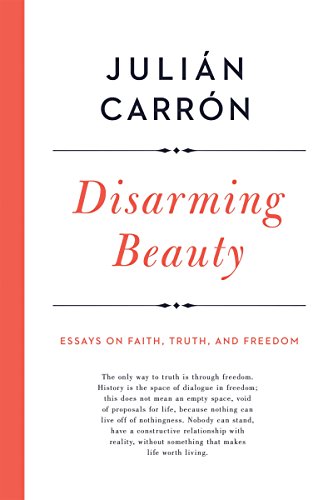The literary critic George Steiner describes our civilizational ennui as entailing “manifold processes of frustration, of cumulative désoeuvrement,” the lack of anything worthwhile to do. It’s an odd description for our busy era, full of technical advances, an anxious drive to improve our lot, and a sense of unceasing and ever more rapid change. Still, what’s the point? Where is it all going?
He continues by noting “energies eroded to routine as entropy increases . . . the drowsy nausea . . . exasperated, vague waiting – but for what?” With an air of sadness, he claims that “the old vocabulary is exhausted, that the forms of classic culture cannot be rebuilt on any general scale.”
Then-Cardinal Ratzinger made a similar observation in Without Roots: “Is European culture perhaps nothing more than the technology and trade civilization that has marched triumphantly across the planet…? At the hour of its greatest success, Europe seems hollow, as if it were internally paralyzed by a failure of its circulatory system that is endangering its life . . . infected by a strange lack of desire for the future.”
It’s pale consolation knowing that I am hardly alone in sensing an end point, a tired staleness. The old vocabulary is exhausted while the great convictions of the Enlightenment wind down, enervated, spent, having consumed themselves in excess, contradiction, and failed attempts to pursue life while ignoring the Author of life.
But shared judgments bring small comfort; I find much more hopefulness in the new book, Disarming Beauty: Essays on Faith, Truth, and Freedom, by Julián Carrón, president of the ecclesial movement Communion and Liberation.
According to Carrón, the dearest values of Europe have largely reversed themselves, contributing not to the promised flourishing, but risking “the utter annihilation of man.” The ideology of freedom becomes a dogmatism fundamentally hostile to genuine liberty as reason narrows and deforms itself into sclerotic rationalism or nihilistic will to power. The authentic freedom of living in the truth is almost indiscernible in the corridors of the academy, the halls of power, and the public square.
And, sometimes, the Church seems tired, too. For instance, as I write, the homepage of L’Osservatore Romano shares vital news of the new logos for Pope Francis’ visit to Bangladesh and Myanmar, we are reminded that “dialogue is the key word,” and informed that the missionary mandate to bring others into the Church is “in need of a fresh theological justification” since the World Council of Churches suggests we do not offend or violate the “religious sensibilities” of others.

While somewhat random, these headlines read like a laying down of arms, a surrender. We rush to accommodate, to assimilate, to be on the right side of history at the very moment that the West increasingly acknowledges a failure of identity and crisis of meaning. Just as liberal post-modernity pleads for help, the Church seems hell-bent to open her doors and windows to its stale, fetid breeze. Many voices announce The Strange Death of Europe, or The End of Europe, or The Retreat of Western Liberalism while the Church . . . well, the Church seems to slumber.
What are we doing? Spiritual and cultural torpor suffocate the West; Nietzsche’s last men stagger about like desperate, dying men, but the Church demurs, vacillates, dialogues. Will she proclaim, witness, offer, communicate her Good News? Carrón reminds us that we have a full-presence only when it “springs forth from the consciousness of one’s own identity and one’s affection for it.” Has the Church self-awareness of her identity, let alone a full and genuine affection for it?
This question is decisive, for our identity, the identity for which we ought to have great affection, is that of Christ, fully God and fully man. We are baptized into him and his life becomes our own, so any failure to love and wish to communicate our identity is the failure to proclaim our Lord.
For Carrón, this is not empty nostalgia for Christendom but the fruitfulness of “the encounter with the event of Christ.” There is “no other way,” he claims, because our most cherished commitment is obscured and deadened “separated from its living root, from the experience that allowed it to fully emerge.”
Tellingly, Carrón references Pelagianism, the failure “to realize the nature of the human problem. For this reason, we can hustle and bustle to activate many attempts at a solution, without in the least challenging the foundation of the issue.” Pelagianism naively (and unfaithfully) thinks it can solve problems with debates, alignments, discussions, but these are of no avail since it is this very assumption that “is already part of the inability to recognize the evidence . . . already part of the inability to grasp what is happening, what the collapse in front of us is.”
The cause of our malaise is forgetting Christ; no amount of dialogue, conferences, or ad campaigns will bring new life to the Church and the world until we encounter the crucified and risen Lord. Everything else is distraction, everything else is part and parcel of the problem. Carrón is a sane voice in the desert in which we find ourselves, and I hope many will listen.
Recently I visited a parish with a “missing” Tabernacle. At liturgy’s end, I led my children on a quest to make acts of reparation for the neglect and indifference given to our Lord as he kept his lonely office. When we were done, a member of that parish, an older woman, asked what we were doing, so I told her, fairly directly, that we were apologizing for making the motions of religion without acknowledging the fount and source of our life. (I didn’t put it quite that way, but it’s what I meant.) Startled, she protested, but I looked back as we departed, and she was kneeling in front of the neglected Tabernacle.
And therein lies our hope.















